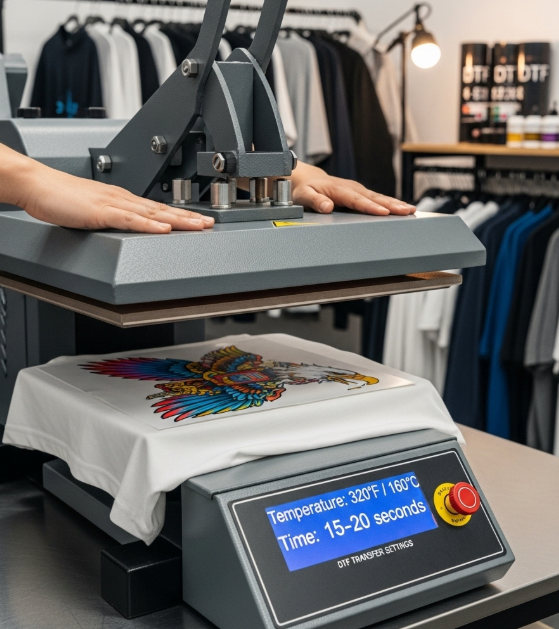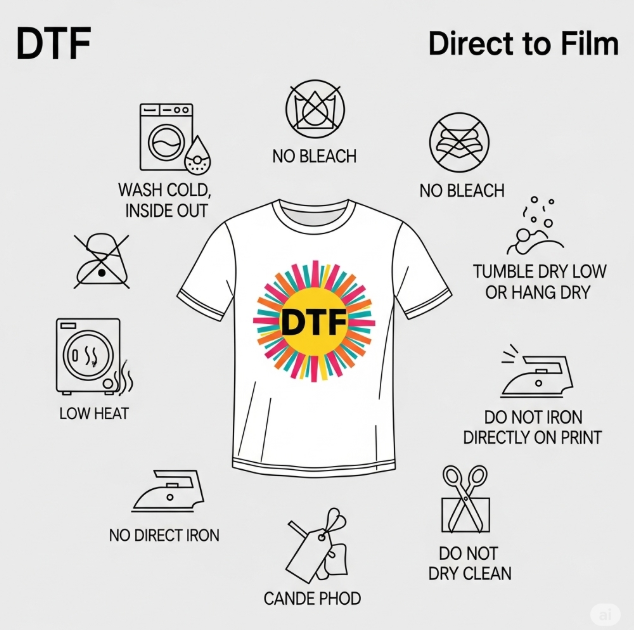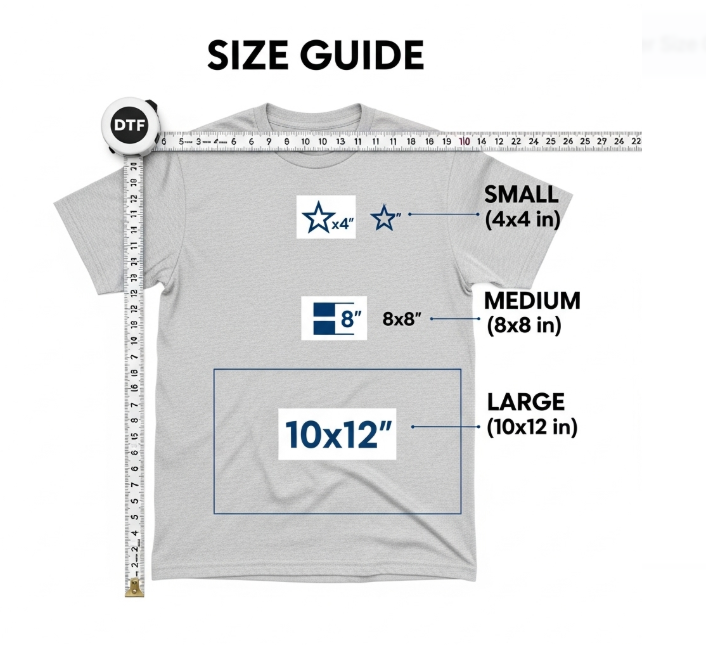
DTF Transfer Heat Settings
DTF Transfer Heat Settings: Achieve Perfect Prints Every Time
Understanding DTF transfer heat settings is crucial for anyone looking to create vibrant, durable, and professional-quality designs on garments. Proper heat, pressure, and timing ensure that the prints adhere correctly to fabrics, remain long-lasting, and maintain their vibrant colors even after multiple washes. Whether you’re a small business owner, hobbyist, or e-commerce seller, mastering heat settings is a key step in producing exceptional custom apparel.
What Are DTF Transfer Heat Settings?
DTF transfer heat settings refer to the recommended temperature, pressure, and duration needed to apply direct-to-film (DTF) transfers onto fabric. These settings vary depending on the type of heat press, the fabric material, and the specific transfer film being used. Achieving the correct settings ensures that the adhesive properly bonds with the fabric, preventing peeling, cracking, or fading.
Key Factors Affecting Heat Settings
-
Fabric Type
Different fabrics react differently to heat. For example, cotton can handle higher temperatures than delicate synthetic blends. Understanding your fabric type helps determine the ideal temperature and pressing time. -
Heat Press Quality
High-quality heat presses distribute temperature evenly across the platen, which is essential for consistent transfer results. Uneven heat can lead to incomplete adhesion or color inconsistencies. -
Transfer Film Thickness
Thicker transfer films may require slightly longer pressing times or increased pressure to ensure the design adheres properly. -
Ink and Powder Compatibility
Using inks and adhesive powders recommended by the manufacturer ensures that your heat settings will work effectively without damaging the print.
Recommended Heat Settings for DTF Transfers
While exact settings may vary depending on equipment and materials, general guidelines include:
-
Temperature: 300–320°F (150–160°C)
-
Pressure: Medium, enough to firmly press the transfer without crushing the fabric
-
Time: 10–15 seconds for hot peel, or slightly longer for cold peel transfers
Following these guidelines ensures optimal adhesion and color retention for your prints.
Step-by-Step Guide to Applying DTF Transfers
-
Pre-Wash Fabric
Wash your garments beforehand to remove any sizing or chemicals that may interfere with adhesion. -
Set Heat Press
Adjust your heat press to the recommended temperature, pressure, and timing based on your fabric and transfer type. -
Place Transfer
Position the DTF transfer on the garment, ensuring it is flat and properly aligned. -
Press Transfer
Apply firm pressure using your heat press for the recommended duration. -
Peel Carefully
Remove the transfer film according to instructions—either hot peel or cold peel—to avoid damaging the print.
Tips for Best Results with
-
Always test a small sample before pressing multiple garments.
-
Avoid moving the heat press while applying pressure, as it can blur the design.
-
Keep a heat-resistant silicone sheet or Teflon sheet over the transfer to protect both the print and heat press.
-
Store transfers properly to prevent moisture or dust from affecting adhesion.
Common Mistakes to Avoid
-
Using excessive heat can scorch the fabric or fade colors.
-
Insufficient pressure may result in incomplete adhesion or peeling.
-
Incorrect timing can either under-cure or over-cure the adhesive, reducing durability.
-
Ignoring fabric type variations may damage delicate textiles or cause uneven prints.
Care Instructions for DTF Printed Garments
To maintain the quality of your DTF prints:
-
Wash garments inside out in cold water.
-
Use mild detergents without bleach or harsh chemicals.
-
Air-dry or use low heat in dryers.
-
Iron inside out if necessary, avoiding direct contact with the printed area.
Proper care ensures that prints remain vibrant and durable for long-term use.
Why Understanding Heat Settings Matters
Mastering is essential for producing professional-quality apparel. Proper heat, pressure, and timing guarantee vibrant, long-lasting prints that withstand repeated washes. This knowledge allows creators to scale production efficiently, reduce material waste, and ensure customer satisfaction with every garment.
Whether you are producing custom clothing for a business, event, or personal project, paying attention to heat settings ensures consistent, high-quality results every time.
Check Out Our Other Products
More information

